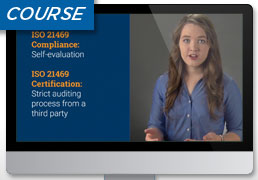Food Processing Equipment Lubrication Online
- Vendor: Noria Corporation
- Type: Online Training
Once online training materials are purchased, you will be redirected to the Noria Learning Portal to create your account. Training materials can be accessed at any time by visiting learn.noria.com.
Description
When it comes to food processing, effective lubrication is fundamental to reliable and efficient manufacturing. When the Food Safety Modernization Act (FSMA) was enacted in 2011, manufacturers contributing to the creation of food, pharmaceuticals and dietary supplements were mandated to implement systems and controls that specifically address the hazards which impact the safety of the food supply. This new law puts the burden on the individual company’s CEO and board of directors to ensure that the food produced is safe. The implementation of the Hazard Analysis and Critical Control Points (HACCP) and the Hazard Analysis and Risk-Based Preventive Controls (HARPC) emerged as primary guiding principles, shifting the focus on responding to contamination in the U. S. food supply to prevention.
This course focuses on understanding the FSMA, how it impacts your lubrication program and the lubricants used. Participants will also learn how to conduct an HACCP review, develop a risk-based prevention control plan and ensure compliance with the law.
What You’ll Learn
- How to develop a plan for assessing current food-grade lubricant use
- How to conduct a Hazard Analysis and Critical Control Points (HACCP) review of your lubrication program
- How to develop compliant standard operating procedures
- How the various food-grade lubricant requirements and consequences of non-compliance contribute to the biological, chemical and physical risks outlined in FSMA
- How to prepare for an FDA inspection and know what you will need for an FDA inspection
History Behind the Legislation
After the terrorist attacks on Sept. 11, 2001, the United States government created the Public Health Security and Bioterrorism Preparedness and Response Act (2002) to establish procedures for protecting the public from a threatened or actual bioterrorist attack on the U.S. food supply and other food-related emergencies. Since then, there have been dramatic changes in the global food system, including a more high-tech and complex food supply, shifting demographics and increased need for understanding food-borne illnesses, their consequences and ways to prevent them. The recent enactment of the Food Safety Modernization Act has increased the responsibility of the manufactures to ensure food purity.
Where Does Your Lubrication Plan Fit In?
When it comes to the lubrication and lubricant contributions to FSMA, facilities need to implement, follow and maintain several procedures to ensure compliance. These steps range from creating a dedicated maintenance team and documented procedures to using the right lubricants and properly applying them. Facilities also need to understand the various contamination types (biological, physical and chemical threats), along with ensuring their lubrication program uses a lubricant identification system and proper lubricant storage and handling. At the end of the day, you need to ensure that your lubrication program can be held accountable for meeting the FSMA legislation.
Gauge Your Confidence Level
When determining your confidence level, ask yourself these questions:
- How confident are you that your maintenance plan will meet all the requirements of HARPC?
- Can you produce that plan to FDA inspectors?
- Who is your qualified FSMA team?
- Do you have the right lubricants – are they food grade and the right type?
- Eliminate all the guesswork with this course.
Instructor:
Loren GreenCourse Length:
2.5 hoursLicense:
1 seat x 365 days**When you purchase an online training course, you are purchasing a 1-seat license for 365 days from the date of purchase. Only one person may view the training materials. The seat license is not based on concurrent connections and may not be shared by other users. Only one person will receive a Noria certificate of completion for the course (this is not the same as an ICML certification).
Purchasing for multiple locations?
Check out the Enterprise Server version.




